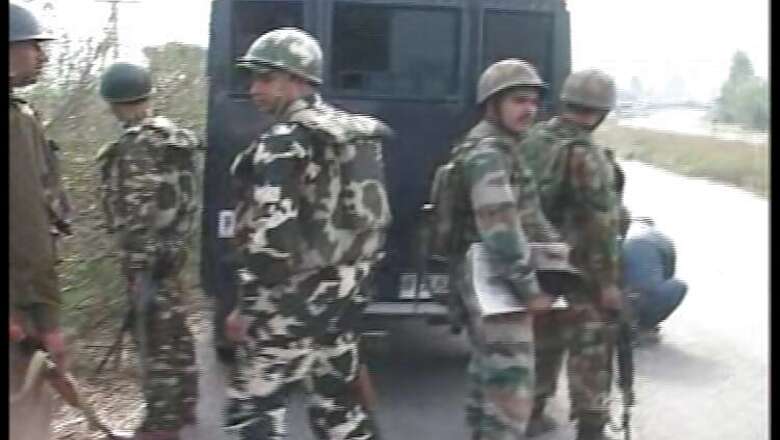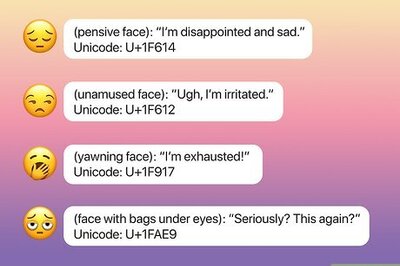
views
A joke doing the rounds on WhatsApp has the granite visage of Russia's President Vladimir Putin and a quote running alongside saying, "The way Indian government is dealing with Islamic terrorism, India would be the safest place for Taliban."
Jokes apart, for a nation that has battled Pak-sponsored terrorism for more than 30 years, we seem unable to get to grips with the kind of sub-conventional warfare being waged, or is that unfair?
Kashmir has been largely contained chiefly because infiltration has been curbed; Punjab turned against militancy a long time ago. Yet the pinpricks from across the border don't end, Pakistan is bleeding India with a thousand cuts.
The fact is there is no policy to tackle proxy war. This is a political initiative but one which our politicians have failed to take seriously for reasons that are not clear. Perhaps the fragmented nature of our polity is at fault. In our system, it's also clear that no intelligence agency can act on its own.
Intelligence officials with long experience of Pakistan, say the nature of that state is also an issue. Former RAW chief AK Verma believes that "Pakistan is blessed because the state (in the sense the army) is against its own citizens. It is a nation in disorder, a nation that has not been able to develop along those lines, Pashtuns, Baluchis and Sindhis have their reservations (about the state), so there is no composite national view. There is no government in Pakistan that commands allegiance."
Indian diplomats who have served in Pakistan admit that talking to Pakistani politicians or diplomats cannot ensure execution of anything they promise because of the army. "We have no access to that army, we talk to politicians and bureaucrats and get nowhere. The Track 2 activity has produced bunkum, it is a paid holiday," one of them remarked.
Does that mean India sits tight, waiting for the next terror strike? Some experts have talked of India waging its own proxy war against the army and its jihadi allies. Others say this is feasible as India has largely rebuilt its networks inside that country and can leverage the widespread disaffection to its advantage.
India has done this before and it's interesting to note that Pakistan is yet to come up with any evidence about such clandestine, pro-India activities on its soil. Such action may be preferable to directly involving the army or the air force, as that would constitute aggression and carry consequences. While there is a lot of Pakistani hyperbole about using tactical nuclear weapons against India even if on its own soil, it carries heavy consequences. The point must also be made that it's not clear if those tactical nukes will actually work.
A word about the attack on the Pathankot air base. AK Verma notes three clear lapses on India's part: The first, the terrorists were able to cross the International Border with all their equipment without being detected; second, they waded through a river (tributary of the Beas) again undetected; and third, they were able to enter the grounds of the air force station before launching their attack.
He suspects a fourth lapse: Reports suggest the warning by Salvinder Singh, SP Gurdaspur, who was hijacked by the terrorists, was not taken seriously by his superiors in the Punjab Police (at least initially).
Verma also finds intriguing the behavior of the terrorists in letting the SP go: "This is surprising," he says, "it is uncharacteristic behavior but also suggests they were clear about their objective and had no intention of getting sidetracked."
The game changer here, he believes, is the breaching of the air force station's cordon sanitaire. No less than seven terrorists, again with all their gear, entered and were able to initiate their attack before base security responded.
"That we killed them is no achievement," he believes. "They had come here to die, their operation was well planned and the objectives were achieved."
(Surya Gangadharan was part of a team of journalists who helped launch The New Paper in Singapore 1988-92. He was Singapore correspondent for Inter Press Service based in Rome. He began his career with PTI in 1981 and has since then worked in India Today, The Indian Express, NDTV & CNN-IBN. He currently edits a magazine 'Parliamentarian')




















Comments
0 comment